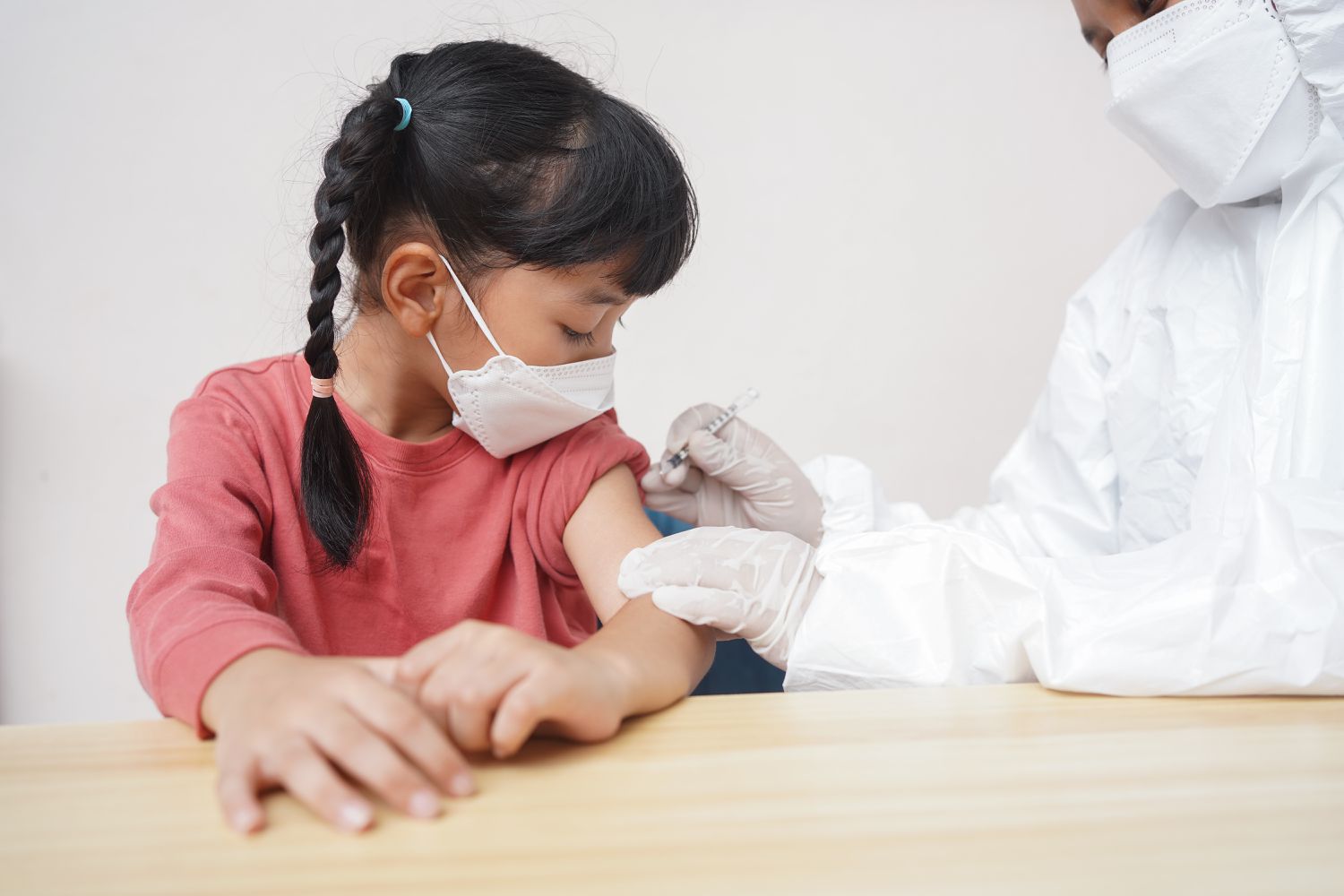Is the COVID-19 Vaccine Necessary for Children?

The Centers for Disease Control and Prevention (CDC) recommends the Moderna and Pfizer-BioNTech COVID-19 vaccines for kids as young as 6 months. Vaccines for children can help protect against severe illness, hospitalization, and death from COVID.
Children aged 6 months and older may need one to three doses of either vaccine, depending on their age and vaccination status. Both Moderna and Pfizer-BioNTech manufacture the COVID vaccine in lower doses for children.
Vaccination is key for preventing COVID and complications from the virus. The options for treating young children with COVID are very limited. The immune response from vaccination compared to infection is also different. Infection causes viral replication and tissue invasion and damage.
A Kaiser Family Foundation survey from 2022 suggested an initial surge in demand. About one in five parents of children younger than 5 said they planned to get their kids vaccinated 'right away' once eligible.
About 28% wanted to wait and see how other young children fare before getting their own child vaccinated. The survey also revealed significant vaccine reluctance: Nearly 27% said they would 'definitely not' get their child vaccinated. Another 11% said they'd do so only if school or daycare required it.
There haven't been any COVID vaccines for children younger than 6 years prior to June 2022. The CDC and Food and Drug Administration (FDA) had to review the safety and efficacy of the vaccines in infants and young children before approving them.
To be fully vaccinated, children aged 6 months to 4 years can receive either two doses of the Moderna vaccine or three doses of the Pfizer-BioNTech vaccine. Each dose is less than what an older child, adolescent, or adult would receive in one dose. Children aged 6 to 11 only need one dose of either vaccine.
Clinical trials of the two COVID vaccines have shown that they're effective and safe for children. Both Moderna and Pfizer-BioNTech vaccines can produce antibodies that protect against the virus, similar to how they work in adults.
Children's risk of severe illness from COVID is less than that of adults, but they're not immune to the virus. 'At the height of the Omicron wave, we still saw a lot of children being hospitalized,' Jennifer Nayak, MD, associate professor of pediatric infectious disease at the University of Rochester Medical Center, told Health. 'The vaccines are the best protection that we have against that.'
This doesn't mean children who are vaccinated won't get COVID at all. The amount of protection these vaccines provide has waned over time as new variants and subvariants have emerged. The vaccine still significantly reduces the risk of severe illness, hospitalization, and death from COVID.
The Moderna and Pfizer-BioNTech vaccines are generally well-tolerated. Keep in mind that the vaccine can't give you or your child COVID since it doesn't use the live virus.
Side effects, which usually resolve within a few days, may include:
'Rates of fever were a little bit higher in these younger kids [in clinical trials], although high fever was rare,' said Dr. Nayak, who was involved in the clinical trials. Fever is a typical side effect of many other childhood vaccines, such as the chickenpox and measles-mumps-rubella (MMR) vaccines.
Children shouldn't receive the Moderna or Pfizer-BioNTech vaccines if they've had a severe allergic reaction to the ingredients. They may be eligible for Novavax, which is a different COVID vaccine. Novavax is approved for children aged 12 and older.
Both Moderna and Pfizer-BioNTech vaccines use messenger RNA (mRNA), which is a type of genetic material. Scientists created the mRNA used in these vaccines in a lab. The mRNA enters the muscle cells through vaccination.
The mRNA teaches the cells to make a spike protein. This protein is also found on the surface of the virus that causes COVID. The body detects the spike protein, which triggers an immune response. The immune system creates antibodies, similar to what it does in response to an infection. These antibodies can protect you against future illness.
You can visit vaccines.gov or contact your local health department to find out where to get a COVID vaccine for your child. Most private insurance, Medicare, and Medicaid plans cover the cost of COVID vaccines. The CDC also offers a program called Vaccines for Children (VFC) that offers vaccines at no cost if you visit an eligible healthcare provider.
Kids aged 6 months and older can receive either the Moderna or Pfizer-BioNTech COVID vaccine. The COVID may provide parents some peace of mind, knowing their child has some protection against the virus. Vaccination helps protect against severe illness, hospitalization, and death.
Researchers have conducted trials on both vaccines to ensure they are safe and effective for children. Common mild side effects, including chills, pain at the injection site, and muscle pain, typically go away after a few days.




